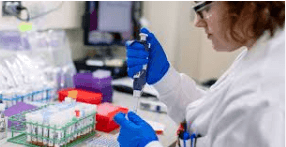Laboratory Services: Reliable Testing for Better Health Outcomes

Laboratory services are integral to modern healthcare, providing essential testing that underpins accurate diagnosis and effective treatment. The reliability of these tests directly influences patient outcomes, ensuring that healthcare providers can make informed decisions tailored to individual needs. As advancements in technology continue to evolve, the landscape of laboratory testing is poised for significant transformation, potentially redefining the standards of care. This raises critical questions about the future role of laboratory services in healthcare systems and how they will adapt to meet emerging challenges. What implications might these changes hold for both providers and patients?
Importance of Reliable Testing
Reliable testing serves as the cornerstone of quality healthcare delivery, influencing diagnosis, treatment decisions, and patient outcomes.
Testing accuracy and diagnostic precision are paramount in ensuring that healthcare providers can make informed choices.
Inaccurate results can lead to misdiagnosis, inappropriate treatments, and detrimental health consequences, underscoring the necessity for trustworthy laboratory services that empower patients and practitioners alike in their pursuit of optimal health.
Types of Laboratory Tests
Laboratory tests are essential tools in modern medicine, facilitating the assessment of health conditions through various methodologies.
Common types include blood tests for biochemical analysis, microbiology cultures for pathogen detection, genetic screenings for hereditary conditions, and allergy testing for sensitivities.
Additionally, imaging services provide visual insights, while pathology reports offer detailed examination results, collectively enhancing diagnostic accuracy and informing treatment strategies.
See also: Procedure for Payroll Process in UAE for Businesses
Impact on Patient Care
How do laboratory services influence patient care outcomes?
These services enhance diagnostic accuracy, enabling healthcare providers to make informed decisions that directly affect treatment plans.
By ensuring precise test results, laboratory services contribute significantly to patient safety, reducing the risk of misdiagnosis and inappropriate treatments.
Ultimately, reliable laboratory testing fosters improved health outcomes, empowering patients and healthcare professionals alike in the pursuit of optimal care.
Future of Laboratory Services
Advancements in technology and a growing emphasis on personalized medicine are set to redefine the landscape of laboratory services in the coming years.
Innovations such as artificial intelligence and rapid diagnostic tools will enhance accuracy and speed.
Furthermore, personalized medicine will enable tailored treatment strategies, improving patient outcomes.
As these trends evolve, laboratory services will become increasingly integral to effective healthcare delivery and informed decision-making.
Conclusion
In conclusion, the bedrock of effective healthcare lies in the reliability of laboratory services, which serve as the compass guiding clinical decision-making. Through a diverse array of tests, these services illuminate the path to accurate diagnosis and treatment, ultimately enhancing patient safety and care quality. As technology continues to evolve, the potential for improved accuracy and personalized healthcare strategies heralds a new era in laboratory services, transforming the landscape of patient outcomes and fostering hope for a healthier future.




